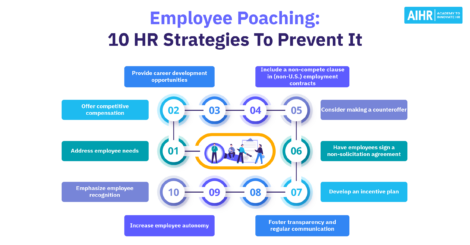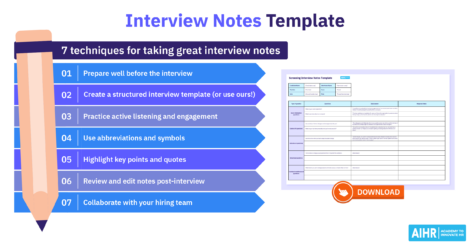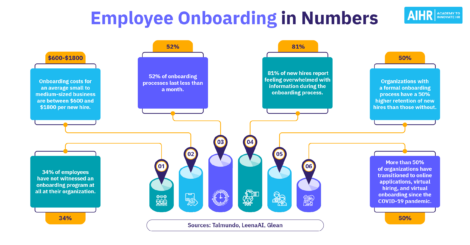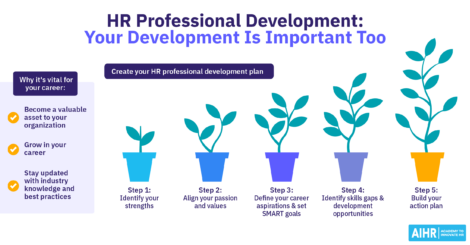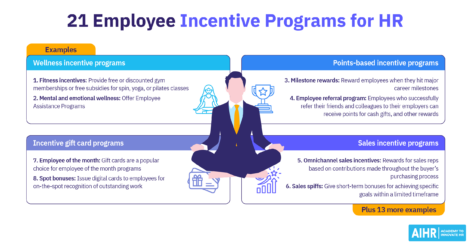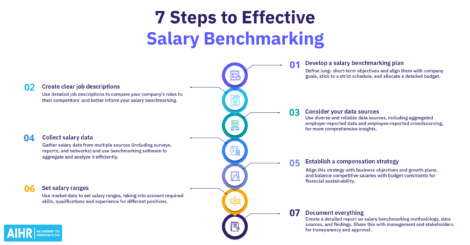20+ Strategic Interview Questions to Ask Candidates When Hiring

When hiring employees for various roles, it’s critical to ask the right interview questions to arrive at your top candidate. Most times, identifying the best candidate requires more than simply reading what they’ve put on paper. Crafting strategic interview questions to ask candidates allows HR practitioners to better understand the individual behind the resume, such as their key skills and personality.
In this article, find out what strategic interview questions are and the different types of strategic interview questions, and provide you with 22 options to ask in an interview.
Contents
What are strategic interview questions?
Types of strategic interview questions
Top strategic interview questions to ask candidates
What are strategic interview questions?
Strategic interview questions are questions an interviewer asks a job candidate to better understand their capacity to perform the job.
One key benefit of asking strategic interview questions is to uncover a candidate’s key attributes and develop a clearer picture of how they might perform in the open role. It’s advisable to keep these questions open-ended to allow the candidate to provide in-depth answers and enable the interviewer to ask follow-up questions.
Types of strategic interview questions
Strategic interview questions can be classified into three categories:
- Career goal questions: These questions help gauge a candidate’s long-term career aspirations and provide HR or the hiring managers with an idea of whether the candidate is looking to stay with a company for the foreseeable future.
- Behavioral questions: Allow you to determine how compatible a job candidate is with the organizational culture and goals.
- Situational questions: Test a candidate’s reaction to real or hypothetical workplace scenarios. They enable HR practitioners to determine candidates’ aptitude for handling situations such as conflicts, risks, mistakes, and losses.
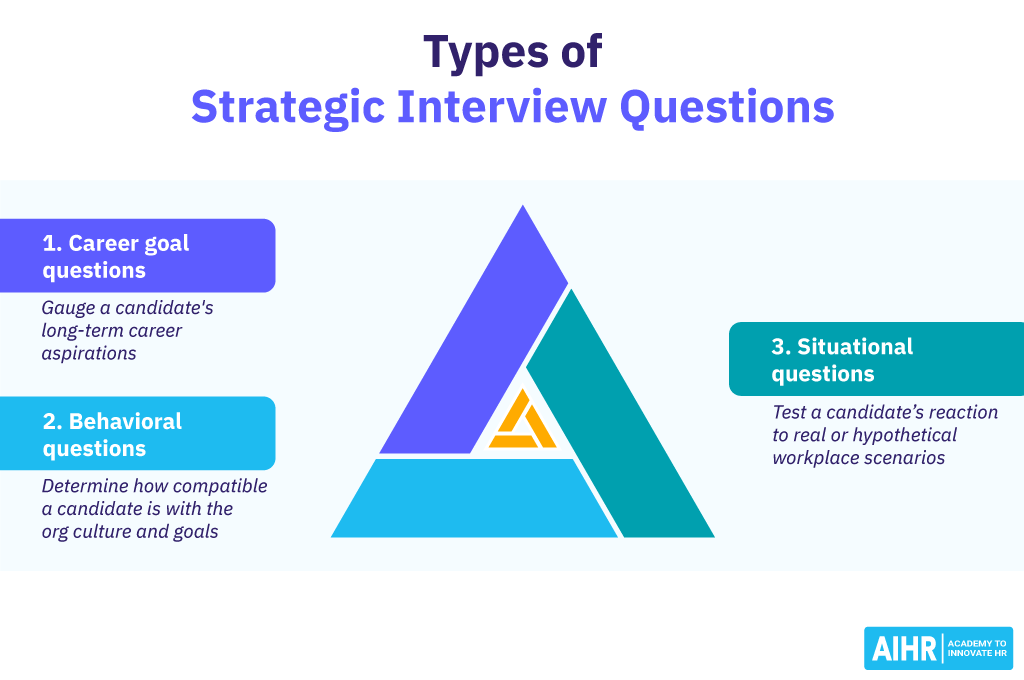
Top strategic interview questions to ask candidates
Although strategic interview questions to ask candidates can vary depending on the role and industry, the questions below can provide you with a good starting point:
1. What’s your ideal organizational culture?
When interviewing a candidate, it’s important to ask about their ideal organizational culture. This type of question can help you get a better understanding of the candidate’s preferred work environment, such as whether they like to work independently or in a team, or if they prefer working remotely or on-site.
By learning about their preferences, you can determine if they are a good fit for your organization. Additionally, discussing your company’s culture during the interview can give the candidate a better understanding of what your company stands for.
2. How do you motivate yourself and stay productive in the face of difficult challenges?
Employees face various challenges in their daily work routine that can impact their motivation and output. As an employer, it’s crucial to evaluate how a potential employee deals with such difficulties and stays motivated.
By asking this question during an interview, the interviewer can assess the candidate’s capability to overcome challenges without affecting their productivity or motivation levels.
3. What are your short and long-term career goals?
Job candidates whose values and aspirations align with organizational goals are less likely to leave, according to a study by Qualtrics. Asking a candidate about their career aspirations helps determine if their paths align with the company’s.
A candidate who does not see themselves working in the industry in the long term may not be the right person for a role. Conversely, a candidate looking to build a long-term career in the industry can be a better fit, and the company can support their career development goals.
4. Tell me about a change you proposed and how it impacted the workplace.
The purpose of this question is to assess whether the candidate is able to adjust their work style. Encourage the candidate to share examples of when they proposed ideas for change and the role they played in implementing the change.
A follow-up question could also include whether they perceived the change to benefit or hinder the team or organization. Here, you are looking to understand whether the candidate can assess the bigger picture.
5. What would you do when a project you have been working on for a long time suddenly hits a major obstacle that impacts the way forward?
This question can be adapted to include a scenario relevant to the role; however, the main goal is to understand how the candidate manages significant challenges within their job.
Are they able to think outside of the box? Would they take a collaborative approach to solving the problem? Their response will provide you with insight into the approach they would take when encountering these challenges.
6. Tell me about a time when you had to use an unorthodox approach to solve a problem.
In any organization, having the ability to solve problems effectively is a valuable skill. Candidates who possess this skill are likely to succeed in the workplace. By asking this question during an interview, you can gain insight into the candidate’s problem-solving capacity.
Inquire about situations where the candidate had to use an unconventional approach to solve a problem. This will help you determine their ability to think outside the box when faced with complex challenges.
7. What innovations are likely to transform the industry in the next five years?
Being up-to-date with the latest happenings in the industry is a crucial quality for potential employees. This inquiry evaluates how enthusiastic and knowledgeable the candidates are about the industry.
In their responses, observe the candidates’ understanding of the upcoming trends and factors that the industry is expected to encounter and how they will influence the organization.
8. How do you stay informed about industry news and trends?
Closely related to the previous, this question seeks to find out what sources of information the candidates rely on for industry developments. In their response, find out what publications they read, podcasts they listen to, or thought leaders they follow.
A positive answer demonstrates their sense of initiative and passion to stay up-to-date with the industry. Lack of quality sources or scant knowledge of trends could indicate to a candidate with a low commitment to self-improvement.
9. Describe a time when you made a serious mistake at work and how you handled the experience.
Even the best professionals can make mistakes. Making mistakes is not a sign of personal failure, but how one handles, learns, and moves on from the mistake can speak much more about their personality.
Asking this question allows you to assess a candidate’s understanding of accountability.
10. What steps do you take to prepare and deliver a persuasive pitch to management, and how do you handle potential objections or pushback?
This question can reveal the candidate’s ability to communicate their ideas effectively, think critically, and anticipate and address potential objections. It can also provide insight into their strategic thinking and their ability to influence and persuade others.
The interviewer should assess what approach they would take as well as whether they demonstrate the ability to anticipate and address potential objections or concerns, and provide data or evidence to support their argument. Additionally, the candidate should show confidence and clarity in their delivery, and be able to adjust their approach based on the feedback they receive from management.
11. How do you handle criticism?
Criticism, whether negative or positive, may be unavoidable in the workplace. How a job candidate handles criticism can define if they are successful or not.
When taken well, criticism can help an employee learn and attain higher levels of performance and career success. Use this question to gauge how a candidate handles feedback about their work, including how criticism may have contributed to their professional development.
12. How would you describe your learning process?
This question is posed to understand the candidate’s approach to learning, how they acquire new knowledge and skills, and their ability to adapt to new situations.
In the ideal response, the candidate should demonstrate a willingness to take on new challenges and learn from mistakes and an ability to apply what they’ve learned to real-world situations. Consider whether their response demonstrates a proactive, curious, and growth-oriented approach to learning.
13. Describe a time when you were involved in a workplace conflict and how you handled the experience.
Having the skill to manage conflict in the workplace is a valuable trait for any worker. During an interview, asking about conflict resolution allows the interviewer to evaluate how a candidate perceives and manages conflicts in the workplace.
A candidate who can address conflicts from various angles and handle them positively can be an excellent addition to the team. A candidate who struggles to manage conflict may not communicate well with management or could take rigid positions on matters.
14. What is your general rule for handling competing tasks?
Task prioritization is a great skill for employees to have as workplaces become more demanding. This question enables an interviewer to assess a candidate’s ability to manage their schedule and prioritize tasks in order of urgency and importance. Candidates who answer this question successfully demonstrate their time-management skills and ability to work productively.
15. How do you motivate those working under you?
Maintaining high team morale is crucial for leaders as it often results in better performance outcomes. During the selection process for a leadership role, evaluating a candidate’s ability to motivate and inspire people is essential.
It is important to seek concrete examples of how they have previously motivated their teams to accomplish specific objectives. This information can help you choose the best individual for the job based on their interpersonal and motivational capabilities.
16. When working on a complex project, how do you explain technical topics to people who are not well-versed in the topic?
At times, employees may need to take charge of challenging projects. In such situations, it is important for them to be able to simplify technical concepts so that the team and leadership can understand and support the project.
By asking this question, you can assess the candidate’s expertise in the field and their capacity to explain the topic in easy-to-understand language.
17. Describe a situation where you worked with people from diverse cultures or backgrounds.
As workplaces become more diverse, it’s important for employees to be able to work well with colleagues from different backgrounds.
Hiring managers can gauge a candidate’s awareness of diversity and their ability to exhibit inclusive behavior on the job with this question. To assess cultural competence and sensitivity, it’s helpful to look at examples of how the candidate has demonstrated these qualities in previous positions.
18. How do you handle ambiguity and uncertainty in your work?
This question allows the interviewer to assess the candidate’s ability to deal with situations where there may not always be clear guidelines. It also helps determine how the candidate manages stress and can adapt to change.
In the candidate’s response, evaluate whether they are comfortable with ambiguity and uncertainty or can remain calm under pressure. Ask the candidate to describe how they managed a specific ambiguous or uncertain situation in their previous role. Consider whether the potential employee was able to communicate effectively, and collaborate with others, or seek help from their manager.
19. Describe a situation where you had to make a difficult decision
This question helps the interviewer to assess the candidate’s decision-making skills, and how they approach complex situations.
Consider the approach the candidate took in this situation, as well as how they managed potential risks, or negative consequences, and finally, the outcome of their decision. In their response, assess whether they were able to communicate the situation or the decision with stakeholders and what they learned from the situation.
Their response should demonstrate sound judgment and the ability to manage risk effectively.
20. How do you deal with work-life balance challenges?
Aviva’s research indicates that work-life balance has emerged as a major concern for employees in the aftermath of the pandemic. Maintaining a healthy work-life balance allows employees to excel in their professional role without neglecting their personal responsibilities.
While evaluating a candidate’s work-life balance, it is crucial to assess their ability to plan their daily tasks effectively and whether they frequently bring work home.
21. What would you do if you found a colleague routinely violating company policies?
This question provides the interviewer with an opportunity to assess the candidate’s ethics, judgment, and ability to handle sensitive situations.
The candidate should illustrate how they would approach the matter on an individual level, and on a company level. Evaluate whether the potential employee would address the matter with the colleague, and/or approach HR with the matter.
Does the candidate show a willingness to work collaboratively to resolve the issue and display good judgment in ethical situations? Look for whether the candidate displays integrity, diplomacy, and professionalism
22. Tell me about a time you set a goal and achieved it.
Asking candidates about their goal-setting strategies can provide valuable insights into their level of ambition and dedication, as well as their approach to achieving objectives. This question can help interviewers gauge a candidate’s determination, motivation, and ability to develop and implement effective strategies for reaching their goals.
Key takeaways
- What are strategic interview questions: Strategic interview questions are questions that provide HR practitioners and hiring managers with an opportunity to ascertain if a candidate is suitable for a given role beyond what’s indicated in the resume or cover letter.
- What are the types of strategic interview questions: Strategic interview questions can be career-oriented, behavioral, or situational. Career-goal questions focus on candidates’ career aspirations, behavioral looks at culture-fit while situational questions assess a candidate’s reaction to different work situations.
- Why ask open-ended questions: Rather than asking yes-or-no questions, open-ended questions allow candidates to provide in-depth answers. Interviewers also get an opportunity to ask follow-up questions on the candidate’s initial response.
Weekly update
Stay up-to-date with the latest news, trends, and resources in HR
Learn more
Related articles
Are you ready for the future of HR?
Learn modern and relevant HR skills, online






